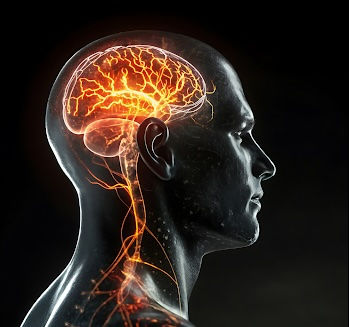5 Important Nutrition Tips for Living with Ehlers-Danlos Syndrome
- Marcia Cristiane Perretto

- Jan 28, 2020
- 3 min read
Updated: Jun 29, 2025
The question about what to eat when you have EDS (or what CAN we eat that doesn’t make our stomachs upset) is one that comes up often. Why? Because we’re all different, but most of us deal with GI Issues (approx.. 85% of those with EDS have GI issues). Unfortunately, what works for one person will probably not work for the next.
Have I said that before?
There’s not one “diet” that provides the magic pill for all of us, but there are a few guidelines that have proven helpful for many of us.
To break the nutrition thing down into a few key points to focus on an d learn from, we’ve compiled our top 10 nutrition tips and resources for optimal health when living with EDS. Because there’s so much that can be written on nutrition, it’s best to start simple and build knowledge step by step.
Here’s our top 5 nutrition tips for EDS:
1. Limit Gluten
Limiting gluten or eating a gluten-free diet does not have to cost a ton, nor does it mean that you can only shop in the gluten free aisle! But limiting gluten can make a huge difference in your life. Gluten can cause inflammation in the body which can cause pain or other complications when you have EDS.
2. Drink or eat a complete probiotic daily
Adding probiotics to your diet can have huge effects on the various GI ailments that people with EDS suffer from. Foods with probiotic properties include Sauerkraut, Kimchi, Miso, Pickles, and Yogurt.
3. Hydrate properly
It’s not surprise that proper hydration and drinking water is critical for everyone’s health. It is also widely known that those with EDS can also have issues with absorption so many people will hydrate with salt or use electrolyte tablets in water. It’s important that all of that water you’re drinking gets put to good use.
4. Limit sugar to only naturally occurring sugars
Try to get away from the processed sugars, including things like Stevia and agave. Instead, swap these fake sweeteners for those that occur naturally in the world like honey, molasses, coconut sugar or cane sugar.
5. Eat real food
Real food means food not from a box. Real food comes from the ground, is grown with little chemicals and includes animals that are fed properly. Real food is fresh, made from scratch, or is raw. Raw doesn’t always mean uncooked! Fruit, vegetables, and nuts are all raw. Raw usually refers to the idea that food comes from the ground and goes right to the dining table, without some elaborate prep method that can strip many foods of the powerful nutrients we need.
Doing your due diligence on where your food comes from and who is preparing it is key. This is not a complete list of all nutrition tips and resources for those with EDS, but these are a few tips that we often share with clients at Actify. Nutrition isn’t everything, but it can certainly help your quality of life. If you’re looking to take the next step in your treatment, fill out this form for a free phone consultation. We specialize in treating those with EDS and have helped a lot of EDS patients live a full and happy life. Click here to schedule a free phone consultation to see how we can help you.

.png)



Kabar4d bikin saya betah main slot online.
I agree with Marlene. This is much more of an advert than something helpful for those of us with EDS. Also, hard to take this article seriously when there is no research noted to back it up, no references, and you didn’t even spell check the article. I’m disappointed.
Most people who have EDS have the overlapping condition called MCAS (Mast Cell Activation Syndrome). Which means that fermented foods are out (all the probiotic foods in #2). And too many common probiotics are the wrong types, exacerbating, not helping, our many gut issues.
Same with the raw foods in #5. Impossible to eat raw veggies without severe stomach upset.
The rest is frankly common sense.
Not very helpful to EDS people.